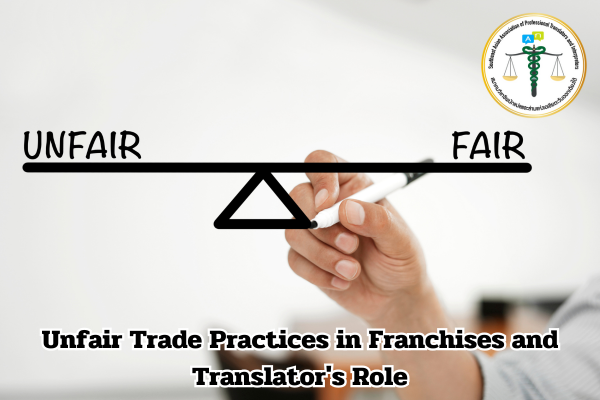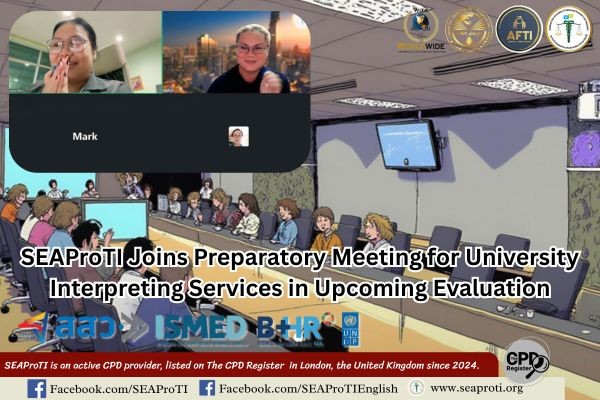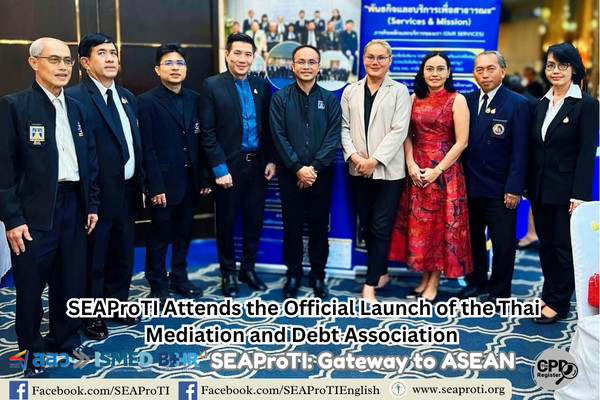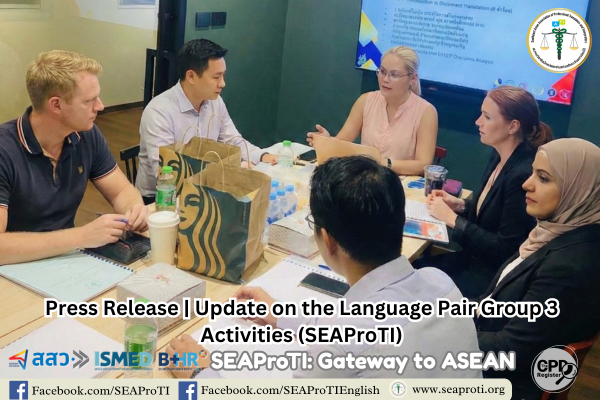“From Angel to Villain”:
Learning Through Failure – A Case Study of Novice Interpreters in Japanese Corporations in Thailand
This article presents the lived experiences of a novice interpreter working in a Japanese corporate setting in Thailand, highlighting the challenges of job probation, high performance expectations, comparison with more experienced colleagues, and the psychological stress associated with underperformance. Using theoretical perspectives from applied linguistics, educational psychology, and intercultural organizational studies, the paper examines how structural and cultural workplace factors affect interpreter development. The study proposes systemic strategies for nurturing interpreter growth, emphasizing the need for structured mentoring, positive reinforcement, and emotional resilience in a high-stakes profession.
1. Introduction
Interpreting—especially within intercultural contexts such as Japanese corporations operating in Thailand—is a high-pressure profession that demands not only linguistic competence but also contextual sensitivity and psychological resilience. Novice interpreters often face performance expectations that far exceed their current skill level, leading to decreased confidence and elevated stress (Gile, 2009; Setton & Dawrant, 2016).
2. Case Study: The Voice of a Novice Interpreter
Drawing from first-person experience, this case study details the journey of a newly graduated interpreter who failed probation due to underperformance in real-time translation, particularly in technical meetings. The case reflects the findings of Wang and Wang (2020), who state that interpreters generally require at least 1–2 years of consistent practice to become proficient in high-stakes professional settings.
3. Key Factors Behind Probation Failure
3.1 Hierarchical Benchmarking and Peer Comparison
Novice interpreters are often evaluated against senior colleagues with 10+ years of experience, triggering feelings of inadequacy and performance anxiety (Bandura, 1997).
3.2 Lack of Structured Learning Frameworks
Many organizations fail to provide systematic mentorship or progressive evaluation systems, depriving interpreters of timely and constructive feedback (Colina & Angelelli, 2017).
3.3 Outcome-Oriented Corporate Culture
Japanese companies in particular tend to focus on deliverables rather than long-term interpreter development, making it difficult for newcomers to gain confidence and professional traction (Kondo, 2010).
4. Psychological and Career Implications
The combination of performance pressure and lack of support can lead to emotional exhaustion, self-doubt, and even depression among novice interpreters (Maslach & Jackson, 1981). These emotional stressors increase the risk of premature exit from the profession.
5. Policy Recommendations and Support Systems
- Formal Mentorship Programs: Companies should assign structured mentors to novice interpreters.
- Formative Evaluation Models: Replace outcome-based assessments with process-focused feedback.
- Psychological Safety in the Workplace: Create emotionally safe environments that allow interpreters to learn from mistakes.
- Realistic Pre-employment Orientation: Training institutions should set expectations accurately regarding real-world workplace demands.
6. Conclusion
Success in interpreting is not solely determined by talent, but by long-term support, organizational understanding, and a safe space to learn through trial and error. What may appear to be failure is often the foundation for professional transformation. The journey from “angel” to “villain”—and eventually to a seasoned interpreter—is one of resilience, not defeat.
References
- Bandura, A. (1997). Self-efficacy: The exercise of control. New York: Freeman.
- Colina, S., & Angelelli, C. V. (2017). Training healthcare interpreters. John Benjamins Publishing Company.
- Gile, D. (2009). Basic concepts and models for interpreter and translator training. John Benjamins.
- Kondo, M. (2010). Intercultural management in Japanese multinational corporations in Thailand. Asian Business & Management, 9(3), 453–473.
- Maslach, C., & Jackson, S. E. (1981). The measurement of experienced burnout. Journal of Organizational Behavior, 2(2), 99–113.
- Setton, R., & Dawrant, A. (2016). Conference interpreting – A complete course. John Benjamins.
- Wang, W., & Wang, Y. (2020). Novice interpreters’ performance and development: A longitudinal study. Translation and Interpreting Studies, 15(1), 52–76.
SEAProTI’s certified translators, translation certification providers, and certified interpreters:
The Southeast Asian Association of Professional Translators and Interpreters (SEAProTI) has officially announced the criteria and qualifications for individuals to register as “Certified Translators,” “Translation Certification Providers,” and “Certified Interpreters” under the association’s regulations. These guidelines are detailed in Sections 9 and 10 of the Royal Thai Government Gazette, issued by the Secretariat of the Cabinet under the Office of the Prime Minister of the Kingdom of Thailand, dated July 25, 2024, Volume 141, Part 66 Ng, Page 100.
To read the full publication, visit the Royal Thai Government Gazette
“จากนางฟ้าสู่นางร้าย”:
การเรียนรู้ผ่านความผิดหวังของล่ามมือใหม่ในองค์กรญี่ปุ่นมุมมองเชิงจิตวิทยาและภาษาศาสตร์ประยุกต์
บทความนี้นำเสนอประสบการณ์ของล่ามมือใหม่ในองค์กรญี่ปุ่นแห่งหนึ่งในประเทศไทย โดยวิเคราะห์ปัจจัยที่ส่งผลต่อความสามารถในการแปล การไม่ผ่านช่วงทดลองงาน ความเปรียบเทียบกับเพื่อนร่วมงาน และแรงกดดันทางจิตใจที่เกิดขึ้นจากโครงสร้างองค์กรและวัฒนธรรมการทำงานของญี่ปุ่น บทความนี้อาศัยกรอบแนวคิดจากภาษาศาสตร์ประยุกต์ จิตวิทยาการเรียนรู้ และการศึกษาวัฒนธรรมองค์กร โดยมีข้อเสนอแนะเชิงระบบในการสนับสนุนล่ามมือใหม่ให้เติบโตอย่างยั่งยืนในสายอาชีพที่ต้องอาศัยความแม่นยำทางภาษาและความยืดหยุ่นทางอารมณ์
1. บทนำ
อาชีพล่าม โดยเฉพาะในบริบทข้ามวัฒนธรรมอย่างบริษัทญี่ปุ่นในประเทศไทย เป็นอาชีพที่ต้องใช้ทักษะทั้งภาษา ความเข้าใจบริบท และความสามารถทางจิตใจในการจัดการกับแรงกดดันสูง ล่ามมือใหม่มักต้องเผชิญกับความคาดหวังที่ไม่สอดคล้องกับประสบการณ์จริงของตน ซึ่งอาจส่งผลต่อความมั่นใจในตนเอง ความสามารถในการแปล และแม้กระทั่งสุขภาพจิต (Gile, 2009; Setton & Dawrant, 2016)
2. กรณีศึกษา: ประสบการณ์ของล่ามมือใหม่
จากการรวบรวมข้อมูลประสบการณ์ตรงของล่ามจบใหม่ที่เข้าทำงานในบริษัทญี่ปุ่น พบว่ามีการไม่ผ่านช่วงทดลองงานจากความคาดหวังด้านทักษะการล่ามที่เกินระดับเริ่มต้น เช่น การแปลประชุมแบบ simultaneous ในบริบททางเทคนิคทันทีภายใน 2 เดือน ทั้งที่ยังไม่มีพื้นฐานเพียงพอ ซึ่งตรงกับการศึกษาของ Wang และ Wang (2020) ที่ระบุว่าล่ามมือใหม่ต้องใช้เวลาอย่างน้อย 1–2 ปีในการพัฒนาให้สามารถรับงานแปลในระดับสูงได้อย่างมีประสิทธิภาพ
3. ปัจจัยที่ส่งผลต่อการไม่ผ่านโปร
3.1 การเปรียบเทียบเชิงลำดับขั้น (Hierarchical Benchmarking)
ล่ามมักถูกเปรียบเทียบกับ “พี่เลี้ยง” หรือรุ่นพี่ที่มีประสบการณ์มากกว่า ซึ่งก่อให้เกิดความรู้สึกด้อยคุณค่า (inferiority complex) และความกดดันต่อประสิทธิภาพในการทำงาน (Bandura, 1997)
3.2 การขาดระบบการเรียนรู้แบบมีโครงสร้าง
ในบางองค์กร ไม่มีระบบ mentoring ที่เป็นระบบหรือการประเมินผลตามระยะ ทำให้ล่ามไม่สามารถรับ feedback ที่ช่วยให้พัฒนาได้อย่างตรงจุด (Colina & Angelelli, 2017)
3.3 วัฒนธรรมองค์กรที่เน้นผลลัพธ์มากกว่ากระบวนการ
องค์กรญี่ปุ่นบางแห่งให้ความสำคัญกับการแปลที่ “สำเร็จแล้ว” มากกว่าการลงทุนระยะยาวกับคนที่ยังอยู่ในช่วงฝึกหัด ส่งผลให้ล่ามขาดโอกาสในการเติบโต (Kondo, 2010)
4. ผลกระทบทางจิตวิทยาและอาชีพ
ล่ามหลายคนประสบภาวะความเครียดเรื้อรัง ซึมเศร้า หรือความรู้สึกว่าตนเองไม่มีค่า (emotional exhaustion) จากการที่ไม่สามารถตอบสนองความคาดหวังขององค์กรได้ (Maslach & Jackson, 1981) ซึ่งอาจนำไปสู่การลาออกจากสายอาชีพหรือเปลี่ยนแปลงเส้นทางอาชีพก่อนเวลาอันควร
5. ข้อเสนอเชิงนโยบายและการสนับสนุน
- องค์กรควรจัดให้มีระบบพี่เลี้ยงอย่างเป็นทางการ พร้อมหลักสูตรฝึกฝนสำหรับล่ามใหม่
- ใช้ระบบการประเมินแบบ formative โดยเน้น feedback เชิงบวกมากกว่าการตัดสินผลลัพธ์
- สร้างพื้นที่ปลอดภัยทางจิตใจในที่ทำงาน (psychological safety) ให้ล่ามสามารถเรียนรู้ผ่านความผิดพลาดได้
- สถาบันฝึกอบรมล่ามควรสื่อสารความจริงเกี่ยวกับความคาดหวังในที่ทำงาน เพื่อเตรียมความพร้อมด้านจิตใจ
6. สรุป
การเติบโตในอาชีพล่ามไม่ใช่เรื่องของพรสวรรค์เพียงอย่างเดียว แต่เป็นกระบวนการที่ต้องอาศัยเวลา ความเข้าใจจากองค์กร และพื้นที่ในการเรียนรู้ บทเรียนจากความล้มเหลวของล่ามมือใหม่จึงไม่ใช่เรื่องที่ควรถูกมองว่าเป็นจุดจบ แต่เป็นจุดเริ่มต้นของการเติบโตสู่การเป็น “ล่ามมืออาชีพ” ที่มีทั้งทักษะและหัวใจที่เข้มแข็ง
อ้างอิง:
- Bandura, A. (1997). Self-efficacy: The exercise of control. New York: Freeman.
- Colina, S., & Angelelli, C. V. (2017). Training healthcare interpreters. John Benjamins Publishing Company.
- Gile, D. (2009). Basic concepts and models for interpreter and translator training. John Benjamins.
- Kondo, M. (2010). “Intercultural Management in Japanese Multinational Corporations in Thailand”. Asian Business & Management, 9(3), 453–473.
- Maslach, C., & Jackson, S. E. (1981). The measurement of experienced burnout. Journal of Organizational Behavior, 2(2), 99–113.
- Setton, R., & Dawrant, A. (2016). Conference interpreting – A complete course. John Benjamins.
- Wang, W., & Wang, Y. (2020). Novice interpreters’ performance and development: A longitudinal study. Translation and Interpreting Studies, 15(1), 52–76.
เกี่ยวกับนักแปลรับรอง ผู้รับรองการแปล และล่ามรับรองของสมาคมวิชาชีพนักแปลและล่ามแห่งเอเชียตะวันออกเฉียงใต้
สมาคมวิชาชีพนักแปลและล่ามแห่งเอเชียตะวันออกเฉียงใต้ (SEAProTI) ได้ประกาศหลักเกณฑ์และคุณสมบัติผู้ที่ขึ้นทะเบียนเป็น “นักแปลรับรอง (Certified Translators) และผู้รับรองการแปล (Translation Certification Providers) และล่ามรับรอง (Certified Interpreters)” ของสมาคม หมวดที่ 9 และหมวดที่ 10 ในราชกิจจานุเบกษา ของสำนักเลขาธิการคณะรัฐมนตรี ในสำนักนายกรัฐมนตรี แห่งราชอาณาจักรไทย ลงวันที่ 25 ก.ค. 2567 เล่มที่ 141 ตอนที่ 66 ง หน้า 100 อ่านฉบับเต็มได้ที่: นักแปลรับรอง ผู้รับรองการแปล และล่ามรับรอง

























